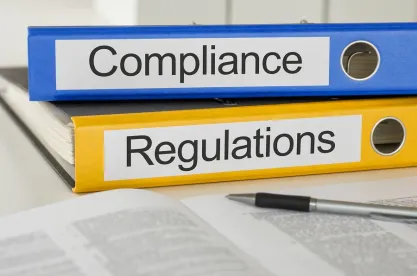|
Unions scored another victory via the Department of Labor (DOL) rule-making process. On March 24, 2016 the DOL published a final rule that will greatly expand the circumstances in which employers will be required to report certain expenditures and activities, as well as agreements with third-party consultants, that are intended to be used to persuade employees as to their bargaining rights. Consultants, including attorneys, have a similar obligation to report any such agreements or arrangements with an employer. Secretary of Labor Thomas E. Perez claims that the new rule will improve transparency and fairness between workers and companies responding to union organizing drives. However, employer representatives worry that client confidentiality and the attorney-client privilege will be threatened by the new rule. Employers may also be less willing to seek advice regarding union organizing campaigns if they have to report how much they have to pay consultants and disclose details of their relationship. Previously, employers and consultants were generally only required to file a report if the consultant communicated directly with the employees. Now, under the new rule, both direct and indirect activities must be reported. Once the reports are filed, they are available to the public – which raises concerns among employers and consultants. The new rule will be applicable to arrangements and agreements made on or after July 1, 2016. According to the Office of Labor Management Standards (OLMS), an agreement or arrangement is reportable if the consultant undertakes "persuader activities," defined as "any actions, conduct or communication that are undertaken with an object, explicitly or inexplicitly, directly or indirectly to affect an employee's decision regarding his or her representation or collective bargaining rights." Employers hiring consultants to conduct a union avoidance seminar or engage in a campaign to avoid or counter a union organizing drive would be prime examples of reportable events. The OLMS Fact Sheet notes that reportable events include consultant activities with an object to persuade employees involving direct contact with employees as well as the following indirect activities:
A consultant's advice to an employer is not subject to the reporting requirements following a long-standing exemption. Advice is defined as oral or written recommendations regarding a decision or course of conduct. The OLMS's Fact Sheet lists the following examples of non-reportable agreements:
The fine line between reportable and non-reportable activities centers on "persuader activities" – those actions which are intended to affect an employee's decisions regarding his/her collective bargaining rights. For example, if a consultant is retained to help an employer develop or revise personnel policies where the stated purpose is not to influence employees' views on a particular union or even unions in general, such activities are not required to be reported, even if as a by-product of developing better or more employee friendly personnel policies, employees might be less inclined to pursue unionization. The "intent" behind such an engagement is what is determinative; what that intent is will generally be gleaned from the communications between the client and the consultant, as well as the timing of those communications. Likewise, even with regard to materials used in response to an on-going union organizing campaign, if the input provided by the consultant is merely to advise the client as to the legalities of what they want to say, it is not a reportable activity. However, if the input is intended to make the message not just legal, but more persuasive, then it is reportable. Such fine distinctions may put both the client and the consultant on shaky footing in terms of their reporting obligations. Finally, DOL has stated that fees charged by consultants to represent the client in legal proceedings or during collective bargaining negotiations are not required to be reported, although care will need to be taken as to what advice might be given off the record and during a caucus. Employers are required to file Form LM-10 within 90 days after the end of the employer's fiscal year. Consultants must file Form LM-20 within 30 days after entering into a reportable agreement, except for reports covering union avoidance seminars, which are due 30 days after the conclusion of the seminar. Form LM-21 must be filed by consultants within 90 days after the end of the consultant's fiscal year. A number of legal challenges have already been filed seeking to set aside the new rule. The outcome of such challenges is difficult to predict. We will continue to monitor the progress of such challenges and report on any significant new developments. In the meantime, now would be a good time to evaluate labor relations policies and procedures before the announced effective date of the new rule and before there is any actual union organizing activity, which activity would undoubtedly increase the specter of any advice given falling within the reach of the new rule. |
New Department of Labor Rule Will Greatly Expand Duty of Employers and Consultants to Report "Persuader Activities"
Tuesday, April 12, 2016
Current Public Notices
Published: 16 September, 2025
Published: 15 September, 2025
Published: 15 September, 2025
Published: 9 September, 2025
Published: 9 September, 2025
Published: 8 September, 2025
Published: 4 September, 2025
Published: 28 August, 2025
Published: 25 August, 2025
Published: 22 August, 2025
Published: 20 August, 2025
Published: 20 August, 2025
Published: 18 August, 2025
Published: 11 August, 2025
Published: 8 August, 2025



 />i
/>i

